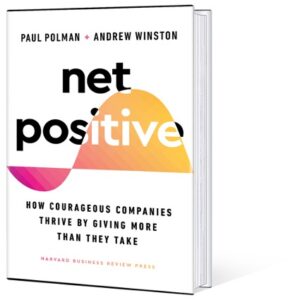The CEO of the giant retailer Target is out.
There are many logical reasons — tough competition, the chaos of tariffs, shifting retail trends. But there’s another big factor here: Target’s retreat from its own values around diversity and inclusion.
Last year, Target pulled Pride merchandise from the shelves after facing threats (from, mainly, bigots). At the time I thought it was a big mistake, especially since the company’s own stated values started with “inclusivity.” Then earlier this year, Target actively retreated from its own DEI efforts. What message did that send employees and customers? The backlash was real: boycotts, declining foot traffic, and a sense of betrayal from communities that saw Target as an ally.
These are not easy times. Companies face enormous pressures on all sides. No matter what you do, you’ll anger someone. But if you can’t please everyone, perhaps it’s easiest to just do the right thing. You’re showing your values either way.
I’m not, um, targeting Target. It had been a strong actor in many dimensions of sustainability for years. But these kinds of stumbles were, and still are, avoidable. Even the go-to strategy now, silence (so called greenhushing), would be preferable.
Even better would be embracing the courage of your convictions.
***Additional Context
Part 1: Rolling back DEI is risk
A fascinating study from early this year polled companies and execs on DEI. One top finding: inclusion is really important to employees. But here’s the most interesting stat to me: “68% of the C-suite and 65% of legal leaders say moving away from DEI would create more legal risk for their organization”
So why do some companies like Target step back? The assumption seems to be that sticking with DEI is riskier.
But what if the real risk runs the other way?
Part 2: People support corporate inclusivity
Some commentators claim that, by seeking to serve the LGBTQ+ community or continue DEI initiatives, Target was serving a small group of people at the expense of the majority which, the argument goes, a mass market retailer shouldn’t do. Besides the problem with saying that companies never serve market niches, is it even correct that the majority of people disapprove of these activities? In short, no.
As one study shows, “70 percent of Americans say that knowing a company offers LGBTQ+ Pride merchandise either positively affects or does not impact their purchasing decisions. [And]…71 percent believe companies should be free to support Pride Month if they choose.” Among younger customers and employees these percentage have got to be even higher.
Should a mass market business do something that (a) appeals to a not insubstantial segment with disposable income and (b) 70% of people support (or don’t care)?
Seems like smart business to me.
[Some good discussion on LinkedIn on these points, here and here.]
fyi, some other recent LinkedIn posts:
Climate tipping points are getting mainstream attention
Fashion supply chains are still decarbonizing
The collapse of the plastics treaty


